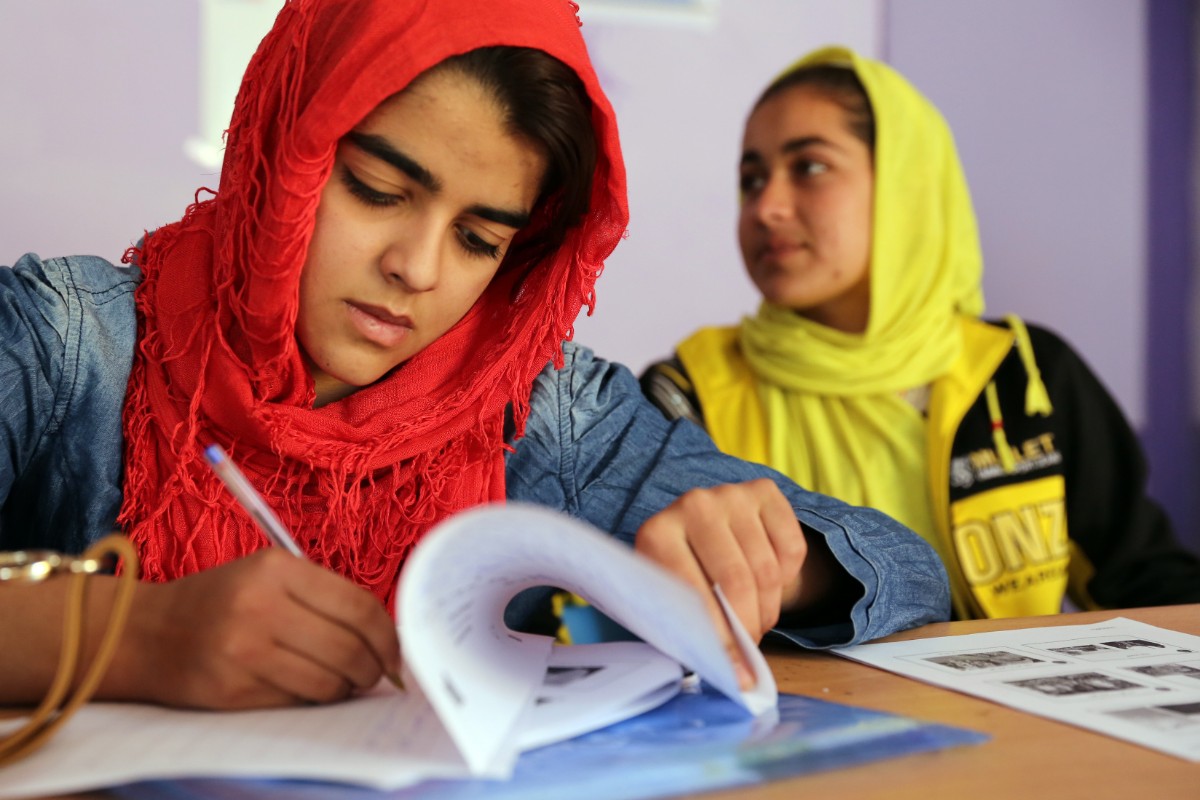 Photo Courtesy of U.S. Department of Defense
Photo Courtesy of U.S. Department of Defense
What Would Happen To Women If The Taliban Took Over Afghanistan?
In an attempt to broker peace in Afghanistan, the United States and the Taliban are preparing to meet for the eighth round of direct talks since late 2018. It is likely that dialogue between the Taliban and the Afghan government will occur within the next few weeks, after US-Taliban negotiations conclude. The goal is to reach a peace agreement by September 1st.
But as the Afghan government continues to seek legitimacy in its own country – it was not even invited to the US-Taliban talks – it leaves one to wonder: what would happen if the talks collapsed, and the Taliban expanded their reach and took control of the country? More specifically, what would happen to Afghanistan’s women?
Today, Afghanistan continues to rank as the worst country in the world for women. But could it be even worse? Many Afghan women are apprehensive about the prospect of the Taliban peace deal, and they are concerned it may set back their rights. The vast majority of women are terrified of returning to a life similar to what it was under the Taliban’s 1996 – 2001 rule.
Life Under the Taliban
When the Taliban ruled Afghanistan, they placed many restrictions on women’s rights due to the group’s narrow interpretation of Islamic law. Women were not allowed to leave their homes without a male guardian. They were not permitted to attend school or work. By June 1998, 2 years after the Taliban took over, over 100 girls’ schools were closed, and girls were no longer allowed to pursue an education past the age of 8. The Taliban also regulated women’s attire, and forced them to wear burqas – full-length veils that completely cover a woman – at all times.
The rules were enforced by harsh punishments. For even minor infractions, women experienced extreme violence. A woman could be “flogged for showing an inch or two of skin under her full-body burqa, beaten for attempting to study, stoned to death if she was found guilty of adultery.”
Today, life is still challenging for Afghan women, but it is better than it was under the Taliban’s rule. Although the vast majority of women remain illiterate and in forced marriages, 3.5 million girls are currently enrolled in school. Furthermore, as of 2019, tens of thousands of women are employed: 68,000 are teachers, 6,000 work in law enforcement and the judicial system, and 10,000 are doctors, nurses, and health professionals. Approximately 25% of Afghanistan’s politicians are women, who hope to be included in current and future peace talks.
Actions and Responses
Throughout the last two decades, women have formed groups and movements to help other women. One prominent group is Women for Afghan Women (WAW), which focuses on protecting the rights of women and girls through a community-based approach. WAW educates people on women’s rights in the context of Islamic law. It also reaches out to women who are in abusive relationships but are afraid to seek help. The group has opened several family guidance centers, women’s shelters, and children’s support centers to help women and girls who are struggling with different issues.
An important movement is Afghan Women for Peace, which was founded to “promote the voices of women from all corners of Afghanistan.” This grassroots movement formed a jirga, or tribal council, that brought 3,500 Afghan women together to express their concerns with the US-Taliban talks. Although they are apprehensive, many women believe it is possible to negotiate peace while ensuring their rights remain.
A Hopeful Future
The Taliban continues to have a lot of influence over Afghanistan. Although it may not control as much territory, the organization is seen by many as more legitimate than the government. But sustaining women’s rights is not part of the negotiations, which worries many. The Taliban claimed they are “committed to guaranteeing women their rights – under Islam – and ‘in a way that neither their legitimate rights are violated nor their human dignity and Afghan values are threatened.’” But it is also clear the Taliban’s views of women’s rights greatly differ from many others in Afghanistan.
Women are hoping that those representing Afghanistan at future peace negotiations are true representatives of the country’s population and will push the issues of women’s rights. As the negotiations continue throughout the next few months, it should become clear how the Taliban plans to address women’s issues, but the fact that they are open to discussions at all is a start. If the group once again rules Afghanistan, we can only hope they allow women to sustain the rights that they have spent decades pursuing.





